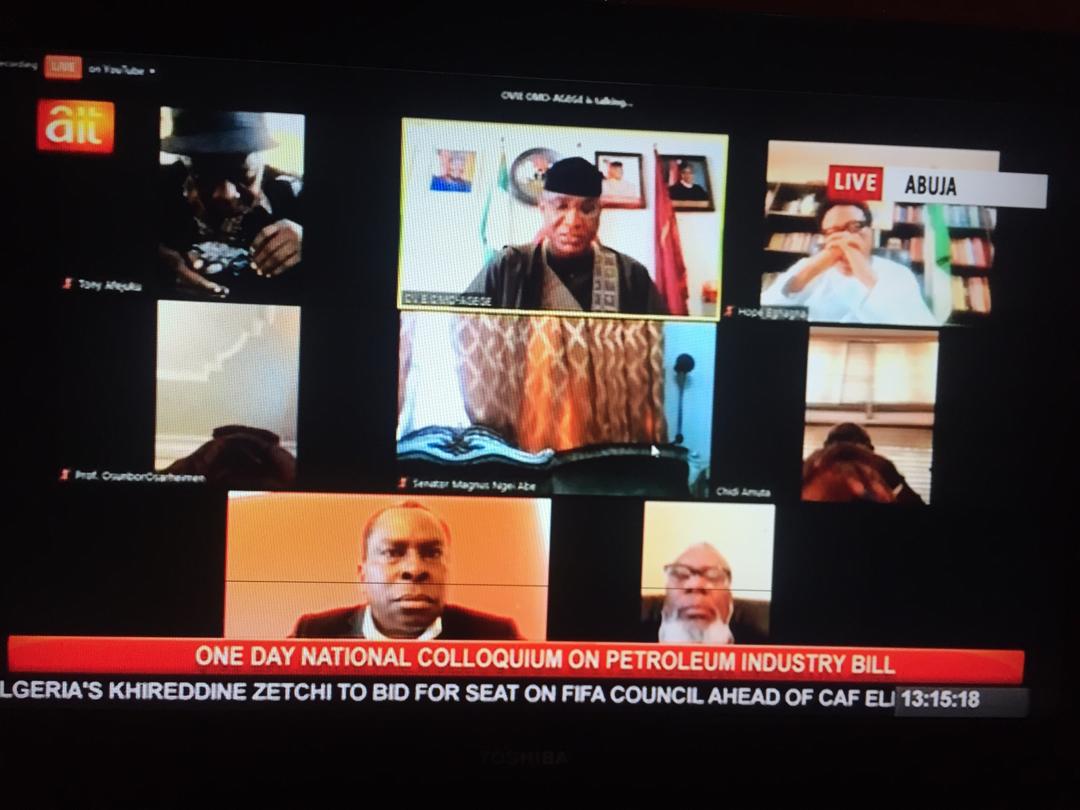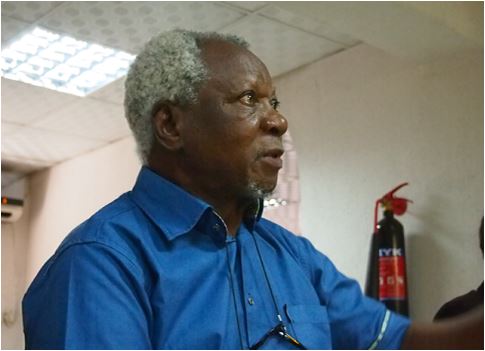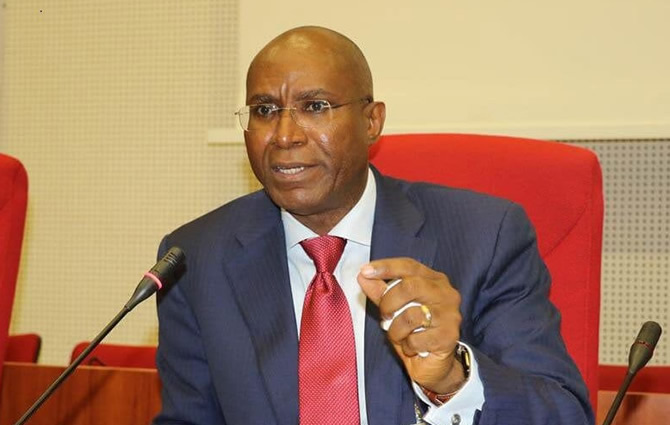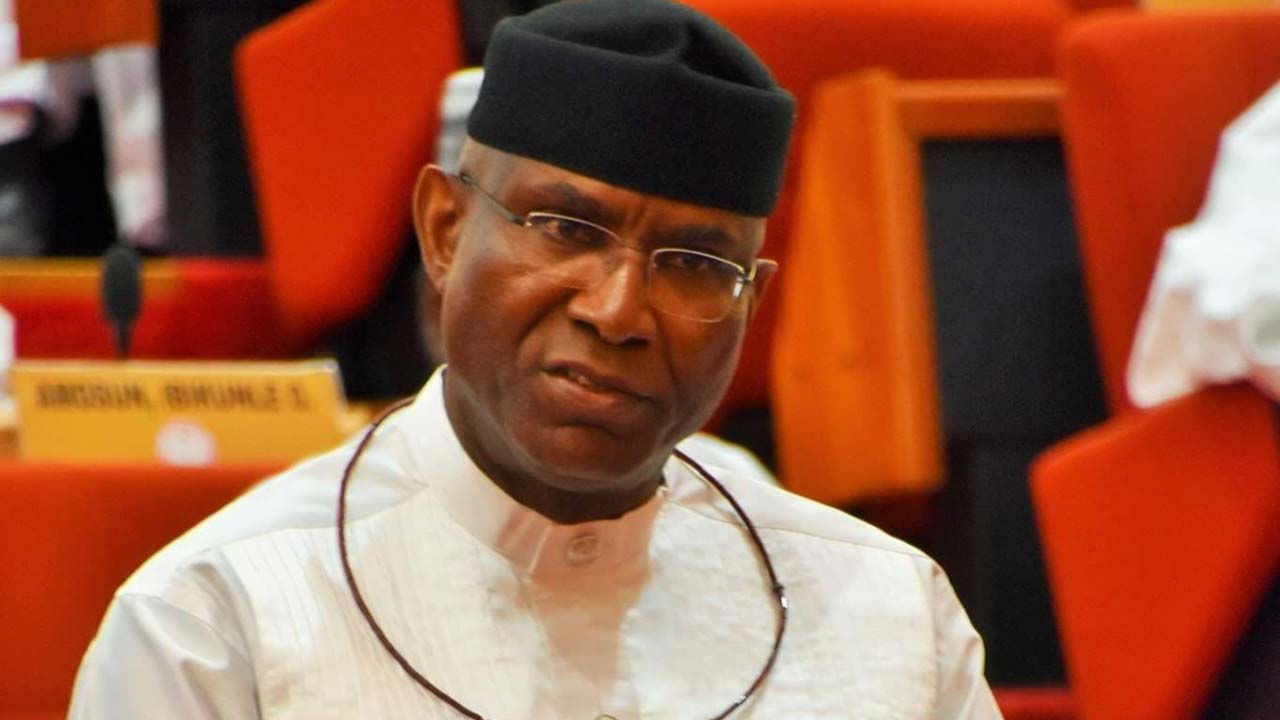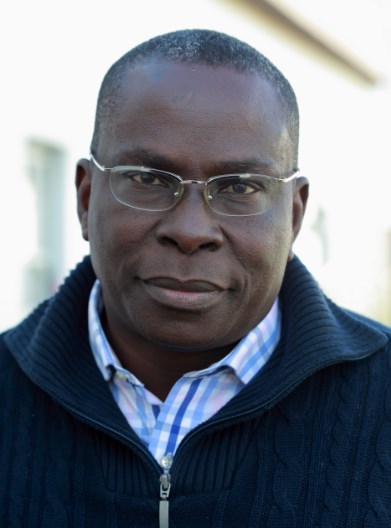A KEYNOTE ADDRESS DELIVERED BY THE DEPUTY PRESIDENT OF THE SENATE, HE SENATOR OVIE OMO-AGEGE, AT A ONE-DAY NATIONAL COLLOQUIUM ON THE PETROLEUM INDUSTRY BILL (PIB)ORGANIZED BY NEWSGURU.COM, HELD VIRTUALLY ON MARCH 10, 2021.
- I am greatly delightedto deliver this keynote address at this august event. I feelboth privileged and honored to share my thoughts with you at this one-day National Colloquium on the Petroleum Industry Bill (PIB). As the theme of this gathering confidently says, we are indeed finally getting it right and breaking the 20-year-old jinx eventually.
- As we all know, the petroleum industry has been the backbone of the Nigerian economy. It is the highest contributor to the national wealth, accounting for about a third of our GDP, over 75 percent of government revenues and 95 percent of foreign exchange earnings.
- Yet we left this critical sector of the economy to operate under outdated petroleum legal, regulatory and institutional structures. The current oil and gas code that governs the petroleum sector was adopted over half a centuryago in1969.
- And now theindustry is underperforming.Production of crude oil has declined, just as the growth in the production of natural gas has plateaued and the country’s natural gas potential; the largest in Africa with unproven reserves estimated at 600 trillion cubic feet, remains underdeveloped.
- The Nigeria Petroleum industry is further burdened by a global supply surplus. There is also a constrained demand growth for crude oil, competition from renewable energy and energy transition projects for international capital. Added to these is alack of refining capacity, gas flaringand environmental degradation,sabotage, pipeline vandalisation, oil theft,and the impact of the Covid-19 pandemic.
- On the brighter side however is that in spite of the increasing global shift towards cleaner, cheaper and renewable sources of energy, oil and gas is projected to still be relevant in global energy sector in the next three decades.What this demands is that nations that have abundance of oil and gas must be in a hurry to make maximum use of these resources.
- With Nigeria’s estimated crude oil reserves of 37 billion barrels and over 200 trillion cubic feet of proven natural gas reserves, Nigeria’s wealth of petroleum resources has the potential to build prosperity and crucial infrastructure for the people of Nigeria.
- However, the capital available globally to the oil and gas industry has been decreasing due to this paradigm shift. This is to say that available capital will only go to nations whose petroleum industries are most conducive for investment.
- But because Nigeria failed to bring the regulatory framework of this critical industry up to speed with global standards,attracting the necessary impetustounlock this potential has, become more difficult as prospective investments have moved from the Niger Delta which was once the main investment destination for oil and gas exploration in Sub-Sahara Africa, to where they have reformed their industries or are in the process of reform.
- According to reports, the last time any significant investment was made in the oil and gas industry was in 2000, as there has been no fiscal stability. For example, Nigeria has lost significant amounts of potential investment to other African countries because we now have one of the least competitive Deepwater fiscal terms in Africa.
- As a result, Nigeria with more significant reserves, has attracted very little investment, whereas Egypt, Angola and Ghana with about half of Nigeria’s reserves combined, have attracted more investment for new projects, because they offer more attractive Deepwater fiscal terms to encourage investors.
- Some of the projects that have been put on hold and awaiting final investment sanction by investors include the Shell-operated Bonga South West/Aparo field, Exxon’s Bosi, Owowo West, and UgeOrso fields, the Chevron-operated Nsiko field, and Eni’sZabazaba field. Together, these projects represent a reported USD 47.6 billion of investment and – at forecasted peak production rates – would add over 750,000 barrels of oil equivalent per day of production, an uplift of approximately 40% on Nigeria’s current rates of production.
- Ladies and Gentlemen, apart from inherent challenges arising there from, Nigeria also faces unique and long-standing challenges that include the persistent calls for the deregulation of the downstream sector and agitation of the oil-producing communities. There are also issues of opaque licensing deals, unaccountable middlemen, graft and lack of electricity to power our homes, streets and industries, as well as calls for the unbundling of the NNPC.
- Now, it is estimated that Nigeria loses $15 billion annually as a result of the delay in passing the PIB. According to a report by Nigeria Natural Resource Charter (NNRC) the delays,through different administrations, in enacting the PIB have cost the country an estimated $235 billion.
- All these underscore the urgent needto do what we should have done in 2008 to give Nigeria the great oil industry it deserves, when President Umaru Musa Yar’Aduasaw the need to overhaul the existing petroleum laws. These include the Petroleum Act of 1969, the Petroleum Profit Tax Act of 1959, and the Nigerian National Petroleum Corporation (NNPC) Act 1977, among other legislations.
- The good news today is that help is on the way, as the 9th Assembly and the government of President MuhammaduBuhari, have boldly taken up the gauntlet and will soon enact the Petroleum IndustryBill 2020 into an Act.On the 29th of September last year, the government of President MuhammaduBuhari took a giant step forward in reforming the industry when he returned the Petroleum Industry Bill as an executive Bill to the National Assembly.
- Subsequently, the Bill was read forthe first time on the 30thof September, 2020, second reading on20th of October, 2020 and public hearing was held on 27th January this year.Now we await the report on the public hearing from the Senate’s committees namely: Petroleum Downstream, Petroleum Upstream and Gas Committee, to be put forward for consideration by the Senate.
- Through this Bill, the president plans to provide a framework to boost oil and gas output while enhancing sector attractiveness for international investors, thus increasing foreign direct investment. He also plans to streamline and reduce some oil and gas royalties, with the underlying objective to encourage international operators to invest in exploration and production, taking advantage of Nigeria’s extensive petroleum reserves.
- The Bill also looks to drive environmental clean-ups and other green initiatives, gas monetization, including measures to encourage companies to explore and produce gas from discoveries, as well as a framework for gas tariffs and delivery.
- Essentially, the present PIB is founded on two main pillars. The first is to run the Nigeria National Petroleum Corporation (NNPC) as a business enterprise by transforming it into a private limited liability company – NNPC Limited. This will be followed by the scrapping of the Petroleum Product Pricing Regulatory Agency (PPPRA).
- This approach is consistent with what is today’s best practice as we see in organizations such as Aramco in Saudi Arabia. The Saudi national oil company was floated on the country’s stock exchange in 2019, with the Initial Public Offer (IPO) raking-in $29billion. There is also Petrobras (PetróleoBrasileiro S.A.) in Brazil, Equinor in Norway, and Petronas in Malaysia. NNPC will be open to private capital and will drop the Minister of Petroleum from the Board of the organization. This is a clear demonstration as to the extent the reforms intend to go.
- The second pillar is to establish separate regulatory authorities for the operations of the upstream, midstream and downstream sectors. These are the Upstream Regulatory Commission and the Nigerian Midstream and Downstream Petroleum Regulatory Authority. The “Commission” will replace the DPR and the Petroleum Inspectorate. The “Authority” will replace the Petroleum Products Pricing Regulatory Agency and the subsidy body, the Petroleum Equalisation Fund will cease to operate.
- Both regulatory bodies will be self financing, but while the Commission will be funded through the appropriation of an unspecified share of its revenues, the Authority’s funding, also via appropriation, will be based on a 1% charge on the wholesale price of petroleum products sold in Nigeria.
- The PIB also seeks to decrease the royalty rate for offshore fields producing a maximum of 15,000 barrels per day to 7.5% from the current 10%. It also looks to raise the royalty threshold of crude oil price to $50 per barrel from $35 per barrel; reduce petroleum profit tax for onshore fields to 72.5% from 85% and decrease royalty payments to 18% from 20%. It will also discourage gas flaring by making its penalties non-tax deductible.
- When passed into law, this landmark Bill will enhance competitiveness in the sector, aid the deregulation of the oil sector and help attract more investment, especially Foreign Direct Investment (FDI) into Nigeria. This will no doubt increase the contribution of this sector to the country’s economy. More FDI inflow will surely boost external reserves and strengthen the naira against foreign currencies.
- The PIB will also help the development of oil infrastructure, which will boost Nigeria’s oil production and export revenue when passed into law. It is expected that private investors will help in the rehabilitation and development of the new oil refineries,by increasing aggregate oil output. Their investment will also help reduce and ultimately eliminate Nigeria’s reliance on imported refined oil.
- For Host Communities, the Bill proposes a Host Community Development Trust scheme to receive a 2.5% fund based on the actual operating expenditure (OPEX) of the oil companies for the preceding year. I am aware that the host communities are requesting 10%.
- The bill also seeks to end the flaring of gas; a major source of waste and environmental pollution, particularly at oil exploration areas. The fund will be used to support the development of healthcare facilities in the host communities, and enhance environmental protection and local initiatives, which are good for the overall socio-economic development of the host communities.The extant laws provide that penalties for gas flaring be paid into the federation account.
- The Host Community component of the PIB is of utmost importance to us in the National Assembly and we believe it should be a win-win for all stakeholders. So, we are determined to ensure that we improve on what is contained in the Executive Bill.
- We are dialoguing to resolve the disagreements on the percentage payable plus who receives the funds. I am confident that we have made good progress such that at the end of the day we will get something more favourable for the oil producing communities.
- One argument that has been pushed for the high cost of production of Nigerian crude oil is security issues including vandalization of facilities. I believe that with passage of the PIB and adequate provision for host communities, there will be improvement of security and reduced expenditure on securing oil and gas facilities. More or all of the savings from the security expenditure should go to the host communities.
- Therefore, a benchmark of10 percent of OPEX of the oil companies for the preceding year payable to the Host Community Development Trust scheme will be adequate, effective and fair to all sides to achieve peace and security in the Niger Delta region.
- I also believe the penalties should be paid into the Host Community Trust Fund for use of the host communities whose environment are impacted by gas flaring.
- The passage of the PIB would get us one step closer to our country’s ambitions to raise the country’s oil production to 3mn bl/d by 2023, increase its oil reserves, including condensates, substantially to 40 billion barrels by 2025 and gas reserves to 210 Tcf by 2025 and to 220 Tcf by 2030. It will also spur government revenue and economic growth as well as help host communities realize their aspirations.
- I am so pleased that this National Assembly has prioritized this Bill that promises to enhance the growth of the oil &gas industry throughexpanding local capacity, strengtheningdomestic gas market,modernizing our fiscal system, encouragingcompetiveness,boosting investorconfidence and creatingharmony for all stakeholders.
- With growing poverty, and millions out of work and rising insecurity from insurgency, banditry, kidnapping and a pandemic, Nigeria needs the Petroleum Industry Bill to be passed into law. It is exactly what Nigeria needs after the enactment of the Deep Offshore and Inland Basin Production Sharing Contract (Amendment) Act 2019.
- I look forward to seeing the final passage of the bill soon. Once again, I thank you all for inviting me to this noble discourse, while I wish us all fruitful deliberations and the eventual optimisation of the full potential of the oil and gas industry.
- Thank you for your attention, as I wish you fruitful deliberations.
HE SENATOR OVIE OMO-AGEGE
DEPUTY PRESIDENT OF THE SENATE
(The Obarisi of Urhoboland)
